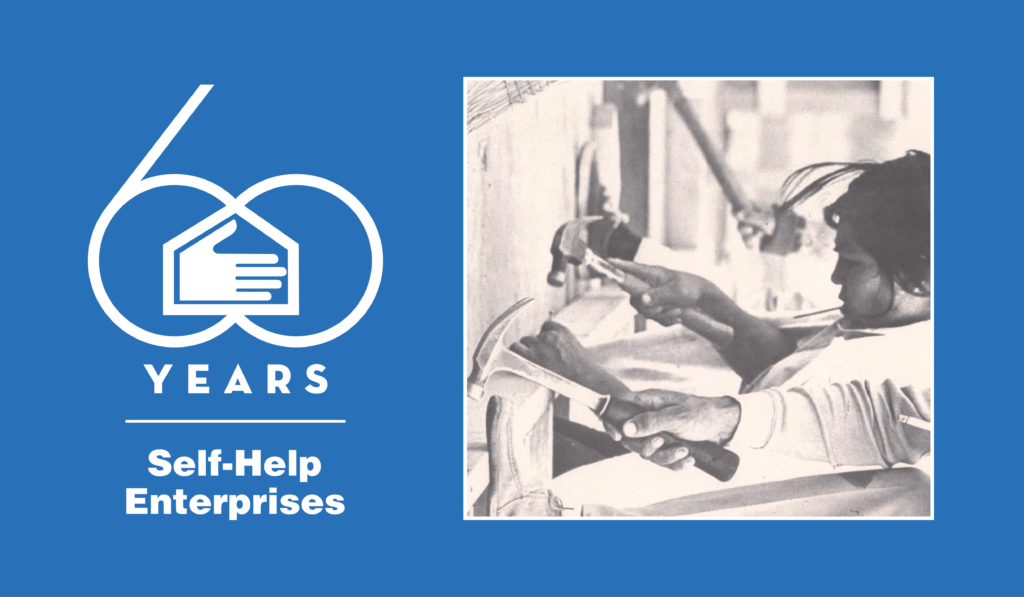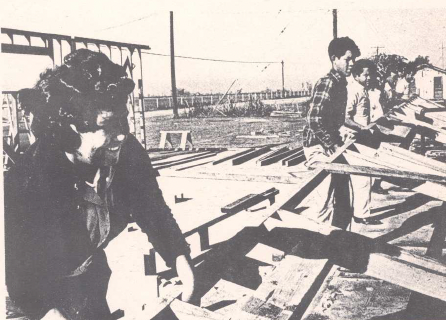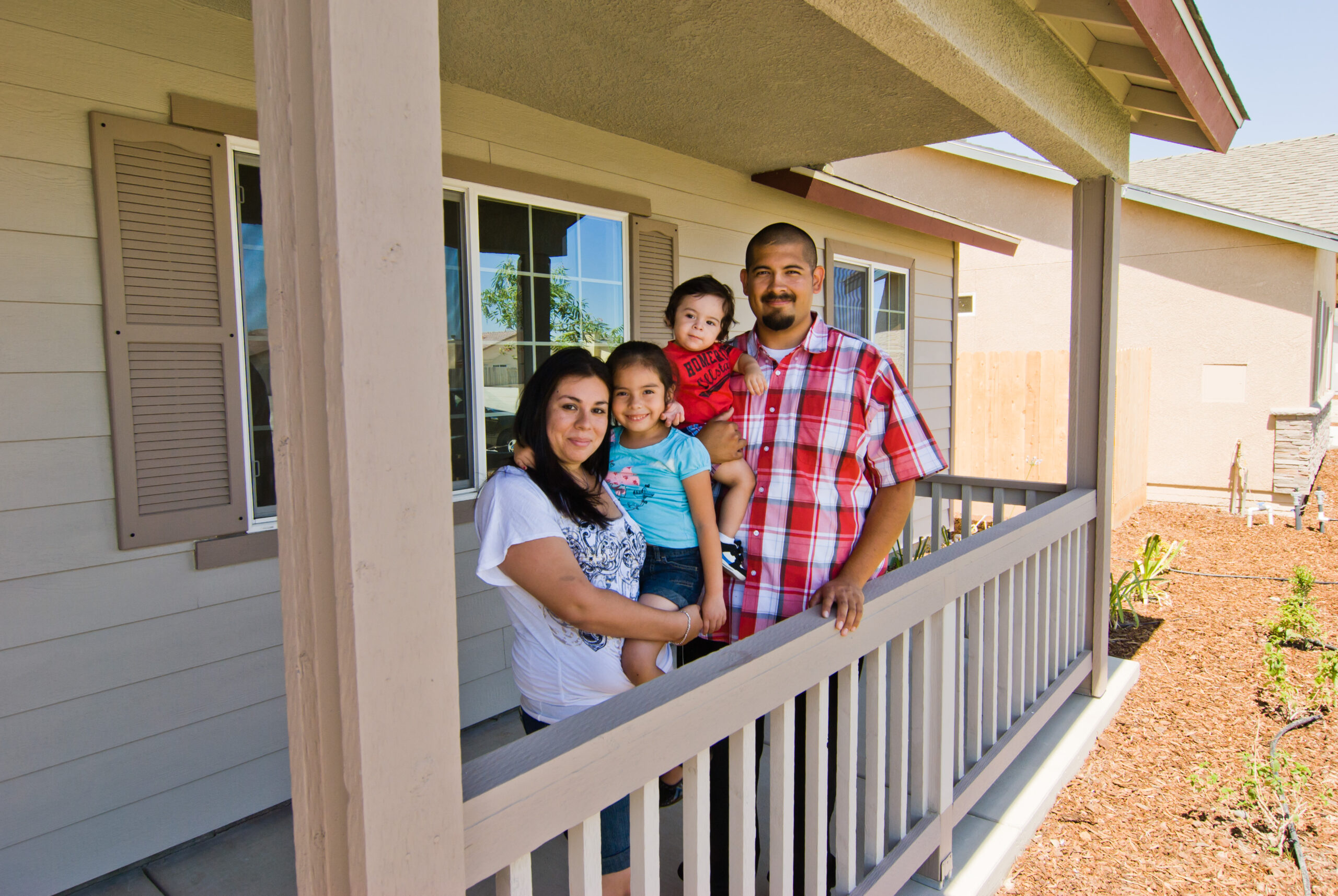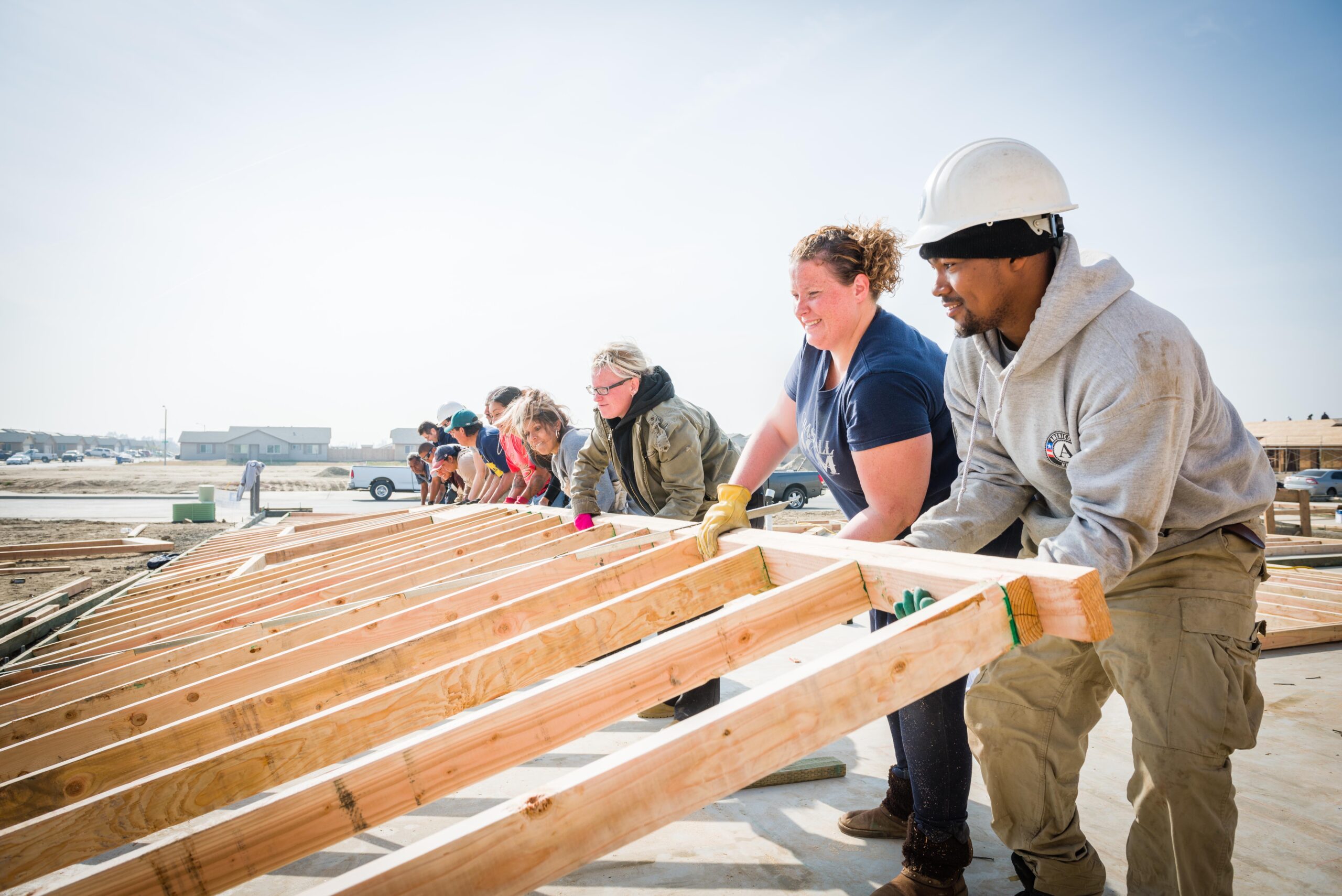The Genesis of SHE: Mutual Self-Help Housing
The Genesis of SHE: Mutual Self-Help Housing

Posted on February 29, 2024
This year, as we enter our sixtieth year of serving the San Joaquin Valley, Self-Help Enterprises (SHE) takes a moment to reflect on our humble beginnings and the journey that has led us to become a beacon of hope for low-income families. SHE emerged in 1965 with a singular focus: to uplift the lives of local farmworkers trapped in the cycle of poverty and inadequate housing. Our pioneering Mutual Self-Help Housing program symbolized the dawn of a new era, where community empowerment and shared labor became the cornerstone of our mission.
“It is difficult for me to express in words what it means to me and my family to be able to see our own home being built. It is beyond any dreams. The problems have been many and the hours long, but the feeling of having something of our own helps to make me forget the years of helplessness and depressed feelings. I believe that with faith in God and by people working together hand in hand we can accomplish whatever we want. We don’t want anything handed to us, we just want an opportunity to work with our hands and pull ourselves out of the situation we are in.” – Mrs. Salvador Gutierrez | Richgrove, California | 1966 
The roots of organized mutual self-help homebuilding as a national program trace back to the poor community of Goshen in the heart of California’s San Joaquin Valley. American Friends Service Committee (AFSC) staff member Bard McAllister worked alongside farm workers and routinely asked them about their dreams and hopes. Universally, the answer was that they wanted decent homes for themselves and their children, yet low-income families, especially those of farmworkers, did not have access to conventional mortgages. In 1961, the U.S. Department of Agriculture provided the Farmers Home Administration (FmHA) Section 502 loans to nonfarm rural citizens. For those in the rural areas of California, this provided a source for mortgage financing.
McAllister applied the owner-builder model and began working with three farmworker families in Goshen who would build their homes under a new concept that was later to become known as mutual self-help where families come together to construct each other’s homes. Howard Washburn, a construction contractor living in the hills above Fresno, who would later become Self-Help Enterprises’ first CEO, heard about the project and volunteered his skills. The local AFSC secured the grants and underwrote the loans necessary to purchase land and pay for construction supervision. In 1963, ground was broken on the group of three houses in Goshen. This was followed by an additional group in Goshen and a third in Cutler.
On January 21, 1965, a small group gathered in the City of Exeter to adopt articles of Incorporation and By-Laws, becoming the first Self-Help Enterprises Board of Directors. On February 5, 1965, Self-Help Enterprises was incorporated as the first rural self-help housing organization in the nation with Howard Washburn as its CEO. Just weeks later, the U.S. Office of Economy Opportunity awarded a self-help housing grant to the newly formed organization.
 Since that first decade, SHE’s program offerings have evolved and expanded, but our commitment to fostering healthy homes and communities remains unwavering. Our Mutual Self-Help Housing program, which to date has empowered over 6,500 families to achieve the dream of homeownership, stands as a testament to the transformative power of collective effort. As we look back and celebrate the success of our original self-help housing focus, we acknowledge that our journey is far from over. The need for affordable housing remains, and we are committed to this effort through our current Mutual Self-Help Housing program.
Since that first decade, SHE’s program offerings have evolved and expanded, but our commitment to fostering healthy homes and communities remains unwavering. Our Mutual Self-Help Housing program, which to date has empowered over 6,500 families to achieve the dream of homeownership, stands as a testament to the transformative power of collective effort. As we look back and celebrate the success of our original self-help housing focus, we acknowledge that our journey is far from over. The need for affordable housing remains, and we are committed to this effort through our current Mutual Self-Help Housing program.
With the Mutual Self-Help Housing program, groups of families collaborate under skilled supervision to construct their homes in less than a year, contributing a minimum of 40 hours per week per family. These labor hours serve as the down payment, significantly reducing the cost of the home. The organization also assists participants in securing necessary loans, making the homes financially accessible. With energy-efficient features and various floor plans, families not only build their homes but also cultivate a sense of community through collective effort, ensuring that no family moves in until all homes are completed. This program embodies the spirit of hard work and investment, empowering families to shape their own futures while creating safe and sustainable communities. To learn more about our Mutual Self-Help Housing program visit: https://www.selfhelpenterprises.org/programs/build-your-own-home/.
The organization also assists participants in securing necessary loans, making the homes financially accessible. With energy-efficient features and various floor plans, families not only build their homes but also cultivate a sense of community through collective effort, ensuring that no family moves in until all homes are completed. This program embodies the spirit of hard work and investment, empowering families to shape their own futures while creating safe and sustainable communities. To learn more about our Mutual Self-Help Housing program visit: https://www.selfhelpenterprises.org/programs/build-your-own-home/.
Stay tuned for more historical background in this year’s monthly newsletters as we celebrate 60 years of SHE!
Recent Posts
Recent Comments
Archives
- February 2025
- January 2025
- December 2024
- November 2024
- October 2024
- September 2024
- August 2024
- July 2024
- June 2024
- April 2024
- February 2024
- January 2024
- December 2023
- October 2023
- September 2023
- August 2023
- July 2023
- June 2023
- May 2023
- April 2023
- March 2023
- February 2023
- December 2022
- October 2022
- September 2022
- August 2022
- July 2022
- May 2022
- December 2021
- October 2021
- September 2021
- August 2021
- July 2021
- June 2021
- May 2021
- April 2021
- March 2021
- January 2021
- December 2020
- November 2020
- October 2020
- September 2020
- July 2020
- June 2020
- May 2020
- April 2020
- March 2020
- February 2020
- January 2020
- December 2019
- November 2019
- October 2019
- September 2019
- August 2019
- July 2019
- June 2019
- May 2019
- April 2019
- March 2019
- February 2019
- January 2019
- December 2018
- November 2018
- October 2018
- September 2018
- August 2018
- July 2018
- June 2018
- May 2018
- April 2018
- March 2018
- February 2018
- January 2018
- December 2017
- November 2017
- October 2017
- September 2017
- August 2017
- July 2017
- June 2017
- May 2017
- April 2017
- March 2017
- February 2017
- January 2017
- December 2016
- November 2016
- October 2016
- September 2016
- August 2016
- July 2016
- June 2016
- May 2016
- April 2016
- March 2016
- February 2016
- December 2015
- November 2015
- October 2015
- September 2015
- August 2015
- July 2015
- June 2015
- May 2015
- April 2015
- February 2015
